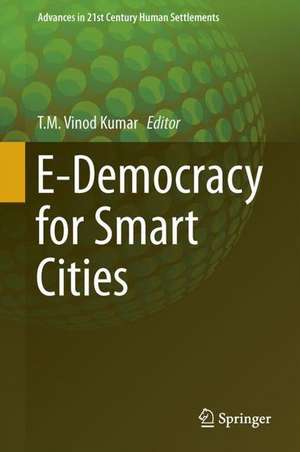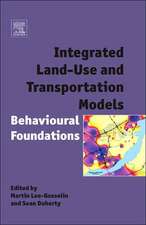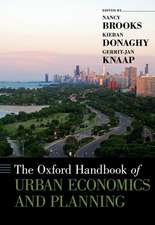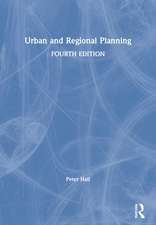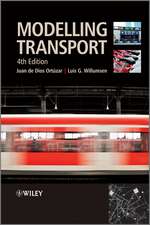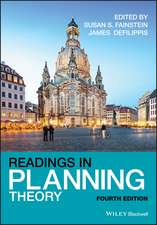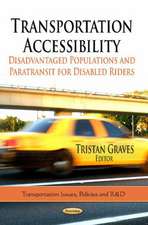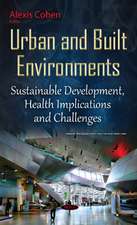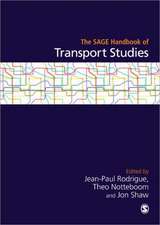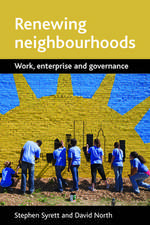E-Democracy for Smart Cities: Advances in 21st Century Human Settlements
Editat de T.M. Vinod Kumaren Limba Engleză Hardback – 24 mai 2017
| Toate formatele și edițiile | Preț | Express |
|---|---|---|
| Paperback (1) | 1120.99 lei 6-8 săpt. | |
| Springer Nature Singapore – 11 dec 2018 | 1120.99 lei 6-8 săpt. | |
| Hardback (1) | 1127.28 lei 6-8 săpt. | |
| Springer Nature Singapore – 24 mai 2017 | 1127.28 lei 6-8 săpt. |
Din seria Advances in 21st Century Human Settlements
- 23%
 Preț: 1043.58 lei
Preț: 1043.58 lei - 15%
 Preț: 701.40 lei
Preț: 701.40 lei - 18%
 Preț: 1446.43 lei
Preț: 1446.43 lei -
 Preț: 132.70 lei
Preț: 132.70 lei - 18%
 Preț: 787.15 lei
Preț: 787.15 lei - 18%
 Preț: 725.75 lei
Preț: 725.75 lei - 18%
 Preț: 896.63 lei
Preț: 896.63 lei - 15%
 Preț: 632.19 lei
Preț: 632.19 lei - 15%
 Preț: 589.33 lei
Preț: 589.33 lei - 15%
 Preț: 640.71 lei
Preț: 640.71 lei - 18%
 Preț: 958.73 lei
Preț: 958.73 lei -
 Preț: 398.74 lei
Preț: 398.74 lei - 18%
 Preț: 902.55 lei
Preț: 902.55 lei - 18%
 Preț: 797.73 lei
Preț: 797.73 lei - 15%
 Preț: 584.92 lei
Preț: 584.92 lei - 15%
 Preț: 586.30 lei
Preț: 586.30 lei - 15%
 Preț: 652.31 lei
Preț: 652.31 lei - 18%
 Preț: 1113.09 lei
Preț: 1113.09 lei - 20%
 Preț: 1053.98 lei
Preț: 1053.98 lei -
 Preț: 482.94 lei
Preț: 482.94 lei - 18%
 Preț: 733.96 lei
Preț: 733.96 lei - 18%
 Preț: 1235.43 lei
Preț: 1235.43 lei - 15%
 Preț: 581.44 lei
Preț: 581.44 lei - 15%
 Preț: 582.63 lei
Preț: 582.63 lei - 15%
 Preț: 695.53 lei
Preț: 695.53 lei - 18%
 Preț: 1231.01 lei
Preț: 1231.01 lei - 23%
 Preț: 1119.80 lei
Preț: 1119.80 lei - 18%
 Preț: 730.02 lei
Preț: 730.02 lei - 15%
 Preț: 643.84 lei
Preț: 643.84 lei - 18%
 Preț: 728.91 lei
Preț: 728.91 lei - 18%
 Preț: 965.97 lei
Preț: 965.97 lei - 18%
 Preț: 958.25 lei
Preț: 958.25 lei - 18%
 Preț: 1861.71 lei
Preț: 1861.71 lei - 18%
 Preț: 1116.26 lei
Preț: 1116.26 lei - 18%
 Preț: 781.45 lei
Preț: 781.45 lei - 18%
 Preț: 900.49 lei
Preț: 900.49 lei
Preț: 1127.28 lei
Preț vechi: 1374.73 lei
-18% Nou
Puncte Express: 1691
Preț estimativ în valută:
215.70€ • 225.82$ • 178.48£
215.70€ • 225.82$ • 178.48£
Carte tipărită la comandă
Livrare economică 05-19 aprilie
Preluare comenzi: 021 569.72.76
Specificații
ISBN-13: 9789811040344
ISBN-10: 9811040346
Pagini: 604
Ilustrații: XXIV, 551 p. 176 illus., 158 illus. in color.
Dimensiuni: 155 x 235 x 32 mm
Greutate: 0.98 kg
Ediția:1st ed. 2017
Editura: Springer Nature Singapore
Colecția Springer
Seria Advances in 21st Century Human Settlements
Locul publicării:Singapore, Singapore
ISBN-10: 9811040346
Pagini: 604
Ilustrații: XXIV, 551 p. 176 illus., 158 illus. in color.
Dimensiuni: 155 x 235 x 32 mm
Greutate: 0.98 kg
Ediția:1st ed. 2017
Editura: Springer Nature Singapore
Colecția Springer
Seria Advances in 21st Century Human Settlements
Locul publicării:Singapore, Singapore
Cuprins
State-of-the-art survey of E-Democracy.- E-Democracy state-of-the-art studies of many cities (from around the world where all sectoral activities in e- democracy will be discussed).- E-Democracy Domains Studies (for example, E-community policing from Iran).- E-Democracy Tools and Issues (for example, e-planning, e-voting, e-policy making, e-budgeting, etc.).- Conclusions.
Notă biografică
Professor T.M. Vinod Kumar has 45 years of professional experience and is specialized in Urban and Regional Planning, Urban and Regional Infrastructure, Urban Environmental Management, Application of GIS in Urban Planning, Models in Planning, Urban Design and Smart Cities. He has vast consultancy experience all over India on urban and rural development, infrastructure, tourism, health care and in Malaysia on new town planning and development, city centre and housing planning and structure planning. He has worked in Bhutan, China, Pakistan, Nepal and India for the Energy for Mountain Development Program of the International Centre for Integrated Mountain Development as Regional Program Coordinator. Academically he has worked in the School of Planning and Architecture, New Delhi as Professor, Head of Department Urban Planning, Head of Centre for Analysis and Systems Studies, Head Centre for Urban Studies and finally Dean of Studies of School of Planning and Architecture, New Delhi. He also worked as Planner-Engineer with the Ford Foundation, India. He was visiting Professor at Bandung Institute of Technology Indonesia, and now at the National Institute of Technology, Calicut. He is author of many books and journal articles and Project Manager for many consulting projects in India and abroad. He have edited the following books recently "Geographic Information System for Smart Cities (Copal:2014), E-Governance for Smart Cities (Springer:2015) and Smart Economy in Smart Cities: (Springer:2016)”.
Textul de pe ultima copertă
This book highlights the rightful role of citizens as per the constitution of the country for participation in Governance of a smart city using electronic means such as high speed fiber optic networks, the internet, and mobile computing as well as Internet of Things that have the ability to transform the dominant role of citizens and technology in smart cities. These technologies can transform the way in which business is conducted, the interaction of interface with citizens and academic institutions, and improve interactions between business, industry, and city government.
Caracteristici
Uses several case studies to understand E-Democracy and the role of citizens Highlights how E-Democracy helps in creating Smart Cities Discusses the relevance of E-Democracy in creating better Governance Includes supplementary material: sn.pub/extras
